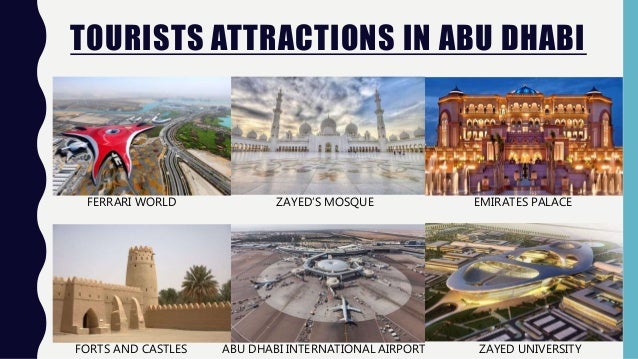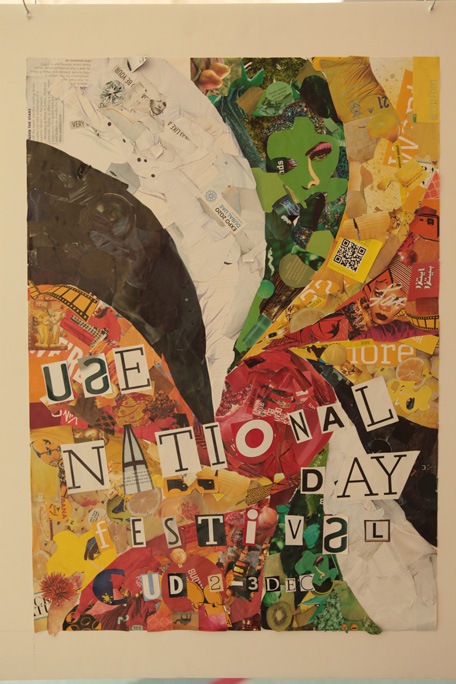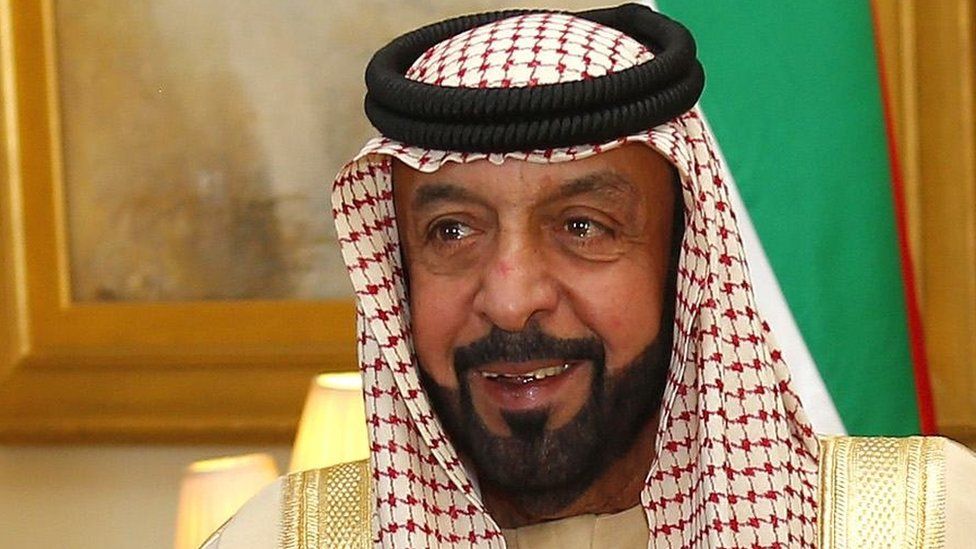Much of the work force in the UAE are foreign expatriates - hence the country's population makeup being so diverse, with Emirati citizens being a minority in their own country. All Emirati citizens receive profit sharing cheques from the government and mostly opt to work in the government sector. Migrant workers from the Indian Subcontinent and the Philippines are mostly employed in the service and construction industries for low wages. Many mid-level jobs are filled by expats and Emirati nationals who work in the private sector, in addition to expats who work in high-skilled and managerial positions and typically enjoy a very good standard of living.
If you're interested in working in the UAE there are opportunities in oil and gas, banking, engineering and education. The public school system in Abu Dhabi is hiring a large numbers of English-language teachers from Western countries. These teaching jobs in the UAE are accessible through official recruiters of the Abu Dhabi Education Council.
In the meantime, bottom-up attempts at renegotiating what "Emirati-ness" means are blossoming in informal settings, especially shopping malls. In these "glitzy spaces" of globalization, Emiratis can establish social relations and experience life while defining and performing new expressions of authenticity. The impact of these commercial complexes should not be minimized but rather deconstructed in order to better grasp the deep social functions they have in allowing identities to be defined, consumed, and renegotiated. Ultimately, "what makes the UAE special and a vibrant community is this diversity," concludes Idil Akinci.
The United Arab Emirates is a Middle Eastern country located on the southeastern end of the Arabian Peninsula bordering the Gulf of Oman and the Persian Gulf, between Oman and Saudi Arabia. The country is made up of a federation of seven political territories ruled by an Islamic monarch, or emirates. Previously under the administration of the U.K., six of the emirates -- Abu Dhabi, 'Ajman, Al Fujayrah, Ash Shariqah, Dubayy, and Umm al Qaywayn -- declared their independence and merged to form the United Arab Emirates. Today, the economy of the UAE, based almost exclusively on the export of crude oil and tourism, rivals those of many westernized nations. Also, because of its moderate approach to foreign policy, the UAE is far more stable than many other countries in the region, avoiding armed conflict and civil unrest. The UAE has developed from a juxtaposition of Bedouin tribes to one of the world's most wealthy states in only about 50 years.
Between 2000 and 2018, average real gross domestic product growth was at close to 4%. It is the second largest economy in the GCC , with a nominal gross domestic product of US$414.2 billion, and a real GDP of 392.8 billion constant 2010 USD in 2018. Since its independence in 1971, the UAE's economy has grown by nearly 231 times to 1.45 trillion AED in 2013.
The non-oil trade has grown to 1.2 trillion AED, a growth by around 28 times from 1981 to 2012. Backed by the world's seventh-largest oil deposits, and thanks to considerate investments combined with decided economic liberalism and firm Government control, the UAE has seen their real GDP more than triple in the last four decades. Nowadays the UAE is one of the world's richest countries, with GDP per capita almost 80% higher than OECD average. Islam is the official religion and Arabic is the official language. The United Arab Emirates' oil and natural gas reserves are the world's sixth and seventh-largest, respectively. Zayed bin Sultan Al Nahyan, ruler of Abu Dhabi and the country's first president, oversaw the development of the Emirates by investing oil revenues into healthcare, education, and infrastructure.
The United Arab Emirates has the most diversified economy among the members of the Gulf Cooperation Council. In the 21st century, the country has become less reliant on oil and gas, and is economically focusing on tourism and business. The government does not levy income tax, although there is a corporate tax in place and a 5% value-added tax was established in 2018. The UAE will celebrate the 50th anniversary of the qiyam al-dawla and qiyam al-ittihad on Dec. 2. Since 1971, when the emirates regrouped under the guidance of Sheikh Zayed bin Sultan al-Nahyan, the Emirati political elite has addressed the complex responsibilities of building a functional bureaucratic apparatus while shaping the nation's identity.
An oil-based model informed this state-building process and the expectations of citizens for decades, but the country now faces a more complex environment. Ras al-Khaimah is situated to the northern part of the UAE, bordering part of Oman's territory, the Musandam. The population of this emirate is 205,000 people, and the Emirati citizens are the largest group. Ras al-Khaimah does not have any oil, and it has, therefore, focused on advancing its industrial sector. The primary economic areas of Khaimah include real estate, tourism, building materials, service sector, and agriculture. The most recognized types of attraction in this emirate include shopping, nature, parks, water, and amusement parks.
The capital city of this emirate is also referred to as Ras al-Khaimah and it is a home to most of the citizens of Ras al-Khaimah emirate. Dubai is the most populous and the largest emirate in the UAE with approximately 2,502,715 people. Notably, it is the most progressive emirate among the seven emirates. Despite being a desert, the country has managed to utilize its resources and according to the 2015 statistics, it has an annual GDP of 105.6 billion USD.
Unlike its neighboring emirates such as Abu Dhabi, the oil reserves of Dubai have been exhausted; oil contributes only 2 % of the total GDP of this emirate. Although it started as a port, Dubai has developed into a luxurious emirate that is home to the world's tallest building. Recognizing the inherent diversity within the UAE social fabric, however, does not mean neglecting the role of genuine expressions of love for the country. Indeed, official national holidays such as Flag Day, Commemoration Day, and National Day are occasions when Emirati citizens collectively convey their sense of belonging through public celebrations and events. Manifestations of national pride have become increasingly popular among the Arab Gulf monarchies as the mounting urgency to move away from oil revenues has raised the stakes of competition in the region.
With Gulf Cooperation Council countries adopting similar diversification strategies in areas such as luxury real estate, mass entertainment events, artificial intelligence, and high tech, the need to stand out from one other becomes an imperative. The United Arab Emirates has an advanced surveillance system, which includes all online modes as well as real life monitoring of public spaces. Media outlets in the country are either owned by the state or must abide by its image and rules in order to operate. The constitution emphasizes that freedom of expression is limited.
Cases of blocking content as well as persecuting journalists are rarely handled with transparency. The judiciary system plays no role in balancing powers and protecting users' rights. With the cybercrime law and latest regulations for social media, there is no room for expression that can go without state persecution, leading users to self-censor their online content.
Du details the criteria it uses to block sites in a document available on its website. The UAE leadership has driven forward economic diversification efforts already before the oil price crash in the 1980s, and the UAE is nowadays the most diversified economy in the Middle East and North Africa region. Although the oil and gas sector does still play an important role in the UAE economy, these efforts have paid off in terms of great resilience during periods of oil price fluctuations and economic turbulence. While the government may still adjust the exact arrangement of the VAT, it is not likely that any new taxes will be introduced in the foreseeable future.
Additional taxes would destroy one of the UAE's main enticements for businesses to operate in the country and put a heavy burden on the economy. The UAE emits a lot of carbon dioxide per person compared to other countries. Activists have faced repeated technical attacks designed to deceive them into downloading spyware. In May 2019, reports emerged that NSO Group, whose spyware enabled various countries to surveil journalists and activists, exploited a security flaw in WhatsApp to hack into targets' mobile devices. The UAE and Israel used to not have diplomatic relations, and as such Israeli passports were not be recognized at the border. Holders of Israeli passport needed to make advance arrangements for an entry permit.
However, despite much online misinformation to the contrary, Israeli visa stamps are — by official policy — not a problem at all, and neither is having been born in Israel or Palestine. The United Arab Emirates has the second-largest economy in the middle east after Saudi Arabia and has a GDP exceeding $377 billion. Except for Dubai, the United Arab Emirates are extremely reliant upon oil, which makes up roughly 85% of the country's exports. Tourism is also a major industry, and the UAE is home to some of the world's most luxurious accommodations.
Other major industries include banking, commerce, and real estate and UAE is known for upholding great business policies and is considered one of the least corrupt countries in the world. With a total population of 68,000 people, Umm al-Quwain is the least populous state in the UAE. Unlike the other emirates, Quwain has not made any findings of oil products or gas. Therefore, its economy majorly relies on revenue collected from hotels, tourism, and parks.
The population of this emirate is estimated to be 127,000 people. Most of the residents in this emirate work in the service sector with the government, prohibiting foreigners from owning any business organizations or company more than 49%. Apart from being the capital city, it is also the second largest emirate in the world with an approximate population of 1.6 million people.
Abu Dhabi is classified as one of the wealthiest cities in the world with most of its revenue originating from petroleum products. This emirate accounts for approximately two-thirds of the UAE economy. Unlike Dubai which is more Westernized, Abu Dhabi is more into cultural traditions. Abu Dhabi is also a major tourist attraction state where most people visit for cultural reasons such as to visit the Sheikh Zayed Mosque, have fun on the sandy beaches, visit the Yas Island and the famous Ferrari World Abu Dhabi.
The UAE's monetary policy stresses stability and predictability, as the Central Bank of the UAE keeps a peg to the US Dollar and moves interest rates close to the Federal Funds Rate. This policy makes sense in the current situation of global and regional economic and geopolitical uncertainty. In the mid- to long term, however, the peg will become less important, as the UAE transitions to a knowledge-based economy – and becomes yet more independent from the oil and gas sector . As impressive as economic growth has been in the UAE, the total population has increased from just around 550,000 in 1975 to close to 10 million in 2018. This growth is mainly due to the influx of foreign workers into the country, making the national population a minority.
The UAE features a unique labour market system, in which residence in the UAE is conditional on stringent visa rules. This system is a major advantage in terms of macroeconomic stability, as labour supply adjusts quickly to demand throughout economic business cycles. These high-profile, state-sponsored events "disseminate narratives about the country's national identity"and allow the government to continue the successful strategy of uniting citizens through an appeal to their common Bedouin heritage. The UAE's nation-building effort is deeper and more structured than a generic public relations campaign. By implementing reforms and inaugurating cultural projects, the leadership is trying to achieve a long-term transformation that encompasses the behavioral, cultural, and personal dimensions of its citizens' daily life.
The Projects of the 50, the roadmap guiding the country's development over the next decades, was announced in September 2021. During the last few years, the social engineering process has accelerated significantly with liberal reforms that position the country as a secure, business-friendly, and welcoming environment in a region known for conflict and instability. In March 2016, the government created two new Ministries of State — one for Tolerance and Coexistence and another for Happiness — and released the UAE Charter of Tolerance. A year later, the leadership established the UAE Soft Power Council.
What Are The 7 Uae Calls for further centralization intensified divisions between "unequal brothers," the southern richest emirates vis-à-vis their northern cousins without natural resources. Even through these periods of conflict, however, the tribe-based Emirati national identity held firm. The following countries can take part in certain Actions of the Programme, subject to specific criteria or conditions . Funding will be allocated to organisations in the countries within their territories as recognised by international law. Applicants and participants must respect any restrictions placed on EU external assistance imposed by the European Council.
The government has allegedly manipulated the online information landscape to advance its interests. Internet freedom in the United Arab Emirates improved slightly this year, although the overall environment remains significantly restricted. Fewer citizens, online activists, and journalists received long prison sentences for content posted online, however a number of people were arrested for their social media posts. Online censorship is rampant and government surveillance is still problematic. The majority of the people in the UAE are expats and tourists, there is a great deal of ethnic diversity.
Instances of discrimination often involve questions about citizenship. The U.S. Department of State reported that discrimination against noncitizens is prevalent and occurred in most areas of daily life, including employment, education, housing, social interaction, and health care. Many disputes involved people originating from Africa and the Indian Subcontinent being discriminated against in commercial disputes.
Despite this, most students will likely be identified as American which affords a noticeable social privilege. The information shared below is a bird eye's view and meant to provide some country-specific context. Since the discovery of oil, the GCC region has undergone a profound transformation and is now home to some of the fastest growing economies in the world. Today, the governments of the GCC countries undertake successful efforts to diversify their economies away from dependence on hydrocarbon industries. These diversified growth sectors, such as finance, logistics, aviation, communications, healthcare and tourism provide abundant business opportunities. Liberal climates towards foreign cooperation, investment and modernization result in extensive diplomatic and commercial relations with other countries.
Umm al-Quwain is the least populous emirate of the 7 emirates in the UAE, with a total population of 68,000 people. It has not made any discoveries of oil products or coal, as opposed to the other emirates. Hence its economy relies heavily on revenue from hotels, tourism, and parks.
Most of the residents of this emirate work with the government in the service sector, prohibiting foreigners from owning any business or company by more than 49%. With most of the emirates exporting oil products, the economy of the UAE has developed tremendously over the last decade, and it is now the second largest economy in Arab world after Saudi Arabia. To maintain its economy, the UAE has already laid down future energy plans. By the year 2050, this country aims at producing 44% clean energy, 38% gas, 12% coal, and 6% nuclear energy. An economy is pegged on the production of energy, with stable and clean energy by 2050. After joining forces, the UAE has grown to become a significant economic center in the Middle East.
This exportation has led to a much-diversified economy making most of the seven emirates such as Dubai to transform into global hubs for retail, finance, and tourism. Annually, each emirate allocates a certain percentage of their revenue to the central budget of the UAE. The seven emirates have developed differently over the last decade as described below. The introduction of mandatory health insurance in Abu Dhabi for expatriates and their dependents was a major driver in reform of healthcare policy. Abu Dhabi nationals were brought under the scheme from 1 June 2008 and Dubai followed for its government employees. The UAE attracts medical tourists seeking cosmetic surgery and advanced procedures, cardiac and spinal surgery, and dental treatment, as health services have higher standards than other Arab countries in the Persian Gulf.
The education system through secondary level is monitored by the Ministry of Education in all emirates except Abu Dhabi, where it falls under the authority of the Abu Dhabi Education Council. The public schools are government-funded and the curriculum is created to match the United Arab Emirates' development goals. The medium of instruction in the public school is Arabic with emphasis on English as a second language.
There are also many private schools which are internationally accredited. Public schools in the country are free for citizens of the UAE, while the fees for private schools vary. In a 22 July 2020 news piece, Reuters reported human rights groups as saying conditions had deteriorated because of the COVID-19 pandemic. Many migrant workers racked up debt and depended on the help of charities. The report cited salary delays and layoffs as a major risk, in addition to overcrowded living conditions, lack of support and problems linked with healthcare and sick pay.



























No comments:
Post a Comment
Note: Only a member of this blog may post a comment.